Ardán's FÍS Games Summit paints a hopeful picture for the future of Irish game development
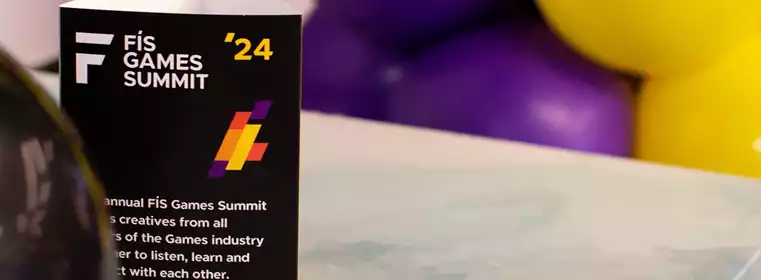
If there are two things to know about Ireland, it's that we are a nation of artists and storytellers and that there are no jobs here and there never have been. Mass migration has been a core part of our culture for hundreds of years; every generation seems to have its reasons why they need to leave.
The last few generations have been the most educated and the most skilled, and yet still they have fled in droves to the UK, North America, and places all across the globe because there was no future here for them here.
Once, we left Ireland to build roads and cities. Now, we're in IT and marketing. We produce world-class artists, writers, and actors, but you can't win an Oscar if you never leave Cork.
The games industry has not been an exception to this. Very few Irish game developers get to stay here and make games in their home country. Even in our own niche industry of games media, the ones who make a success of themselves usually end up abroad.
This may be about to change - as the industry evolves, there might finally be a place for developers here in Ireland.
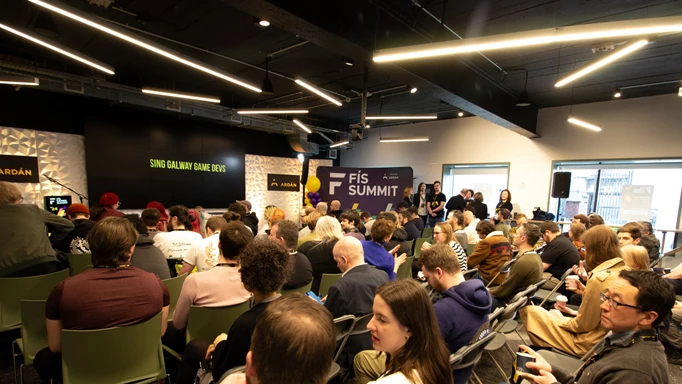
 Click to enlarge
Click to enlargeArdán is a non-profit organisation dedicated to elevating folks in film, TV, games, and animation, specifically in the West of Ireland. Every year for the last few years, they have held the FÍS Games Summit in Galway. This localised game developer conference brings in speakers from across the globe, but crucially brings together game developers from across the island.
I've attended this event twice now, and both times have come away having learned much. When I attended the event earlier this month, I went in with a mission: I wanted to get to know the locals and meet people who are developing games here in Galway, and elsewhere around the country.
I wanted to know how they were getting on, what drew them to this career, and generally get an understanding of what it is to be a game developer in Ireland in 2024. I was pleasantly surprised by what I learned.
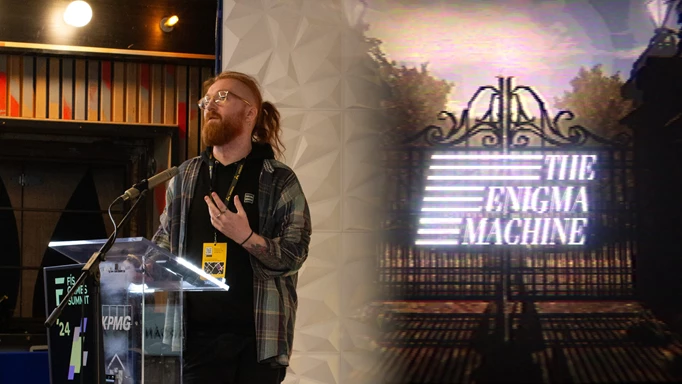
 Click to enlarge
Click to enlargeThe first talk of the day was given by Jamie Gavin, better known as the solo developer ENIGMA STUDIO, and creator of sci-fi horror hits THE ENIGMA MACHINE and MOTHERED. Jamie's talk, about his own experience becoming a developer, really set the tone of the day for me.
His journey has had its ups and downs, but overall the message was positive and encouraging. Like all success, there is a degree of luck involved. Jamie is a talented and creative guy whose games struck the right chord at the right time, but also he says he benefits greatly from the support around him.
This success, with support from groups like Ardán, has allowed Jamie to turn game development into a full-time job. I got to speak with Jamie after the FÍS Summit, as I wanted to learn more about his work, and how he felt about being a full-time developer based in the West of Ireland.
When I asked him about what drew him to Galway specifically, he told me it was the 'richly creative vibe' and 'carefree atmosphere' of the city that drew him in. Galway has always had this reputation; many who want to make a living in the arts come to this city. You only have to walk the streets to see why: from the art on the walls to the buskers on Shop Street.
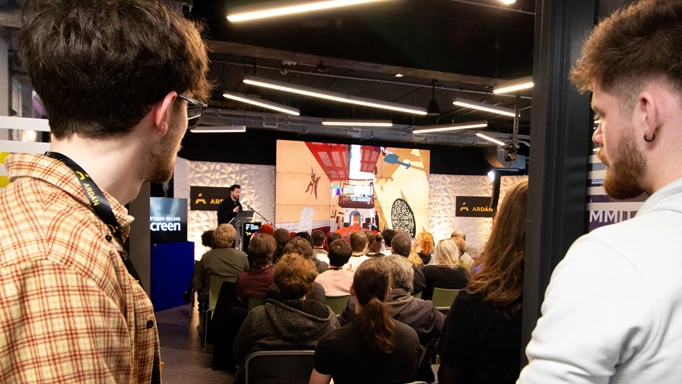
 Click to enlarge
Click to enlargeFor the longest time, if you wanted to work in a creative field in Ireland, you probably had to move to Dublin. Many of us who don't live in Dublin shudder at the thought. Ireland can be an expensive place to live, but nowhere is quite like Dublin.
The cost of living is sky-high in the capital, pricing all but the highest earners out of the city. To take a job in Dublin, usually means giving up things like disposable income, personal space, and generally the things in life that make us happy.
This is why it is so encouraging to see huge progress being made outside of Dublin. Another Galway-based developer I spoke to, Kieran Murphy of Banbha Productions, spoke highly of the city and the resources available to him here.
He described Galway as 'the hub' for game development right now and told me that if he needed anything, he could find it here in Galway. From other developers and folks in the know to workshops and regular Game Jams, the city is teeming with talented, hungry creators eager to collaborate and learn.
I've met Kieran a couple of times now and learned a bit about his upcoming project, Wings of Balance. Kieran wants to properly portray the stories of Irish mythology, and promote the use of the Irish language through this ambitious game. His goals are lofty but so worthwhile. Thankfully, he has the support he needs from the local community - and from Ardán.
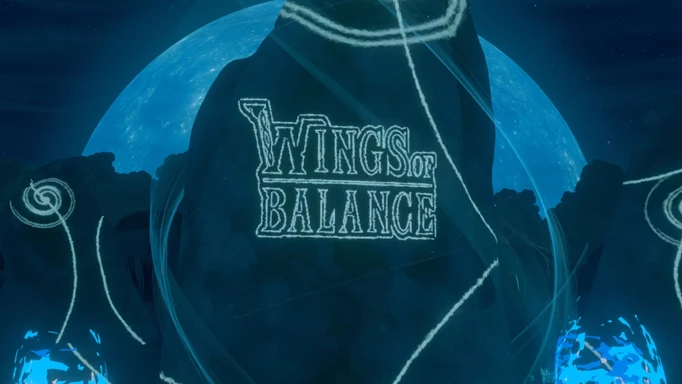
 Click to enlarge
Click to enlargeIt feels a bit strange to give so much credit to an organisation for their support of local artists. Years of watching grants get slashed and budgets cut have made me cynical of these kinds of support, and with good reason. As I learned from Jamie Gavin, government support schemes like Basic Income for the Arts might not be suited to game developers.
In his application for support, he found there was no option to apply as a game developer. He could apply as a 3D modeller, an animator, a video editor, and under many more of the hats he regularly wears as a solo indie developer. Ultimately, he was told that game development didn't qualify for the scheme, and no help was given.
This is unfortunately common; as gaming is still viewed as such a new industry, the government and other agencies are slow to properly recognise it. Much of the funding that does come to the industry has come through schemes for film and TV.
Even taxation is slow to change, with moves only being made recently to create specific tax incentives for the industry, after years of lumping them in with film and TV. Games have essentially been piggybacking off of other industries for years now, but without true recognition, proper funding and support have been difficult to find.
In contrast, Ardán's Wild Galway Games Initiative provides direct support, mentorship, and education to game developers in Galway. Everyone I spoke to at the FÍS Summit spoke very highly of this scheme. Several told me they wouldn't be able to do what they do without it. Jamie Gavin told me he 'wished that was a thing five years ago'.
This is what surprised me so much, and I have my own cynicism to blame for that. It's so rare to see the arts properly supported in this day and age, and to see it happening here without any catches or clauses was truly eye-opening and inspiring. Ardán has helped new creators achieve things they couldn't do otherwise, and it expects nothing in return.
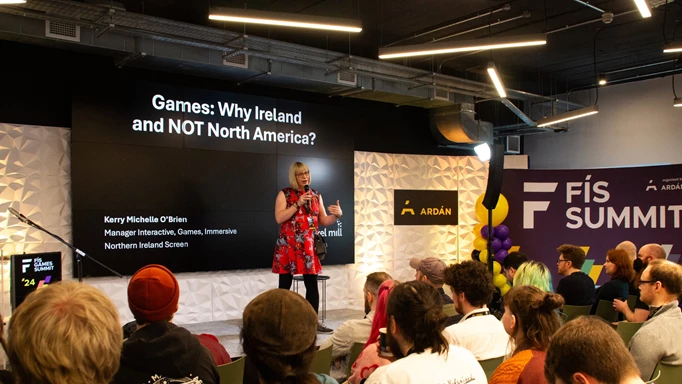
 Click to enlarge
Click to enlargeAnother of the talks given during the day was by Kerry Michelle O'Brien, on why she left high-paying jobs in America to come and work with the local talent in Northern Ireland.
Kerry spoke openly about how she sees things, that there is such a wealth of talent and expertise here, north and south of the border. There is real support here, from organisations like Ardán and Northern Ireland Screen. This is a place where creative people can work and create without being tied to big corporations and investors. Collaboration is key to this, and it seems that Northern Ireland might be the model others should follow.
I had a chat with Thomas Hislop, one of the Creative Directors at Bellular Studios, the studio that released The Pale Beyond last year to critical success. Bellular is one of several growing studios based in Belfast and around Northern Ireland, and from what I can understand, they have a pretty good idea of how to do things.
Thomas has been in the industry for 10 years, and according to him, it has been a healthy, sustainable career for the last 4 or 5. He told me that when he started, game development in Northern Ireland was '10 people in a Cafe Nero'. Now, there are at least as many studios in NI, and they work closely together. Rather than viewing one another as competition, they see the benefit of helping each other. They share ideas, resources, and even staff where needed.
Mutually Assured Production was the term coined for this process, and by all accounts, it has led to a thriving game development scene in Northern Ireland. Through collaborative organisations like the Pixel Mill, funding from Northern Ireland Screen, and a willingness to share and educate, Northern Ireland has everything it needs to become a force in the gaming industry.
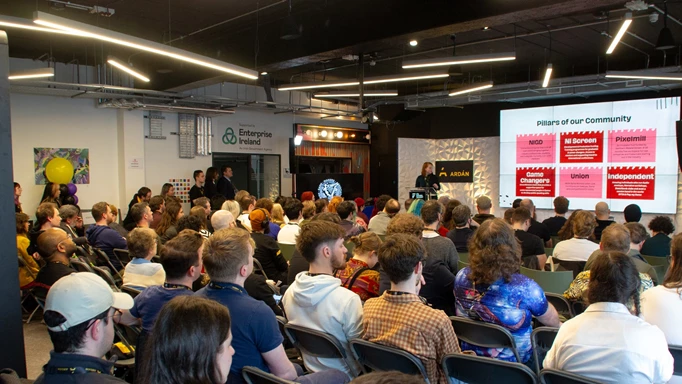
 Click to enlarge
Click to enlargeBoth north and south of the border, Irish game developers are creating spaces where they can learn, collaborate, and grow. In a country that has always focused the majority of its funding and effort on Dublin, it seems like Galway and Belfast are primed to take the lead in games.
It is hard to understate how revolutionary this idea is - a future where opportunities don't come with the caveat of leaving home. This has almost always been a country where, if you had a dream career, you'd have to follow that dream to Dublin, or overseas.
Personally, I had always assumed that was in my future as well. When I started in games media, the idea that I could do this full-time from here in Ireland felt like a pipe dream. Thanks to remote work becoming more of a thing, I got to stay home and chase my dream without leaving my family and friends behind. This is becoming true for more industries, especially game development.
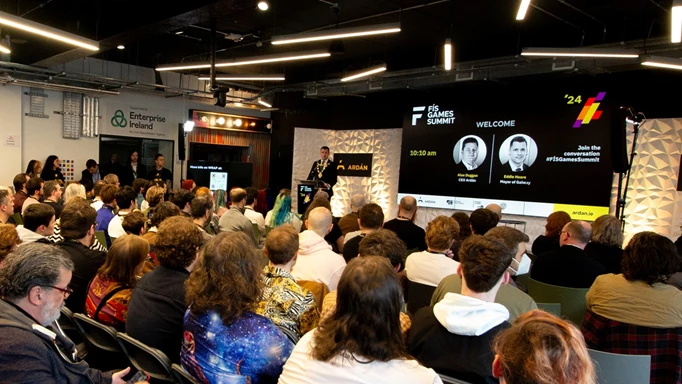
 Click to enlarge
Click to enlargeThis shift seems to be taking hold, as even our elected officials are taking notice. The FÍS Summit was attended by the Mayor of Galway, Eddie Hoare, and Minister of State Dara Calleary. They both spoke highly of the efforts made by developers here and pledged their support to continue this growth.
Now, we've all heard politicians pledging support to the arts, and we know what that usually means - but there was more to this than empty rhetoric. Just that day, a new space called CREW was opened in Galway. This not-for-profit co-working environment exists to support folks working in digital arts, giving Galway's creators a space of their own.
Furthermore, Minister Calleary announced a new scheme called IndieDev 2024, managed by Ardán and IMIRT, which will grant significant funding to independent developers across the island. This all goes to show that, while there is always more to be done, support is on the way.
IMIRT, the non-profit Irish game developers association, announced that it has received funding to hire a CEO who will dedicate themselves to developing and promoting the games industry here. Until now, IMIRT was entirely a voluntary organisation. They have been a vital part of the growth of the industry so far, so it is very exciting to see what they can do with some money behind them.
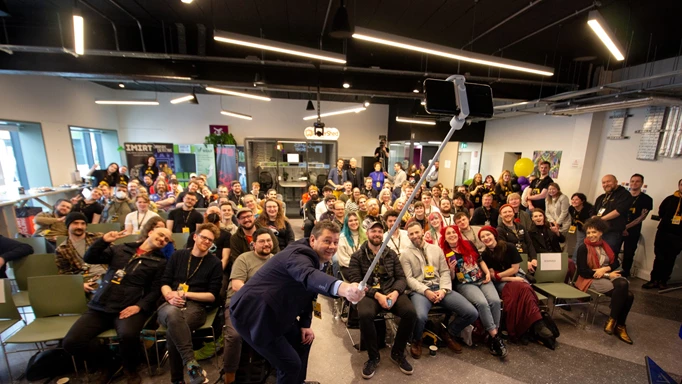
 Click to enlarge
Click to enlargeI came away from my day at the FÍS Games Summit feeling relentlessly hopeful. The hard work of groups like Ardán, IMIRT, and their partners seems to be paying off. There is real progress being made towards building up Irish game development into a sustainable and healthy industry.
The developers who live and work here are such a kind and generous bunch. They see the value in raising each other up - everyone I spoke to seemed just as dedicated to helping others and sharing their knowledge as they were to help themselves.
They have seen and heard of the pitfalls of the industry around the world. Where big business has led to toxic work environments and unacceptable working conditions. The folks I talked to showed that they have learned from the mistakes of others, and are working hard to prevent them being repeated here.
It has been said too many times that Ireland is a country with talent, with expertise, but without the proper funding or facilities to fully support the arts, especially regarding the games industry. For too long, the only games companies here were big international corporations plonking their European headquarters down in the place that gave them the biggest tax break.
Now, there are real supports in place to help new developers find their footing. It's an exciting time for the Irish games industry, and I cannot wait to watch it grow.
